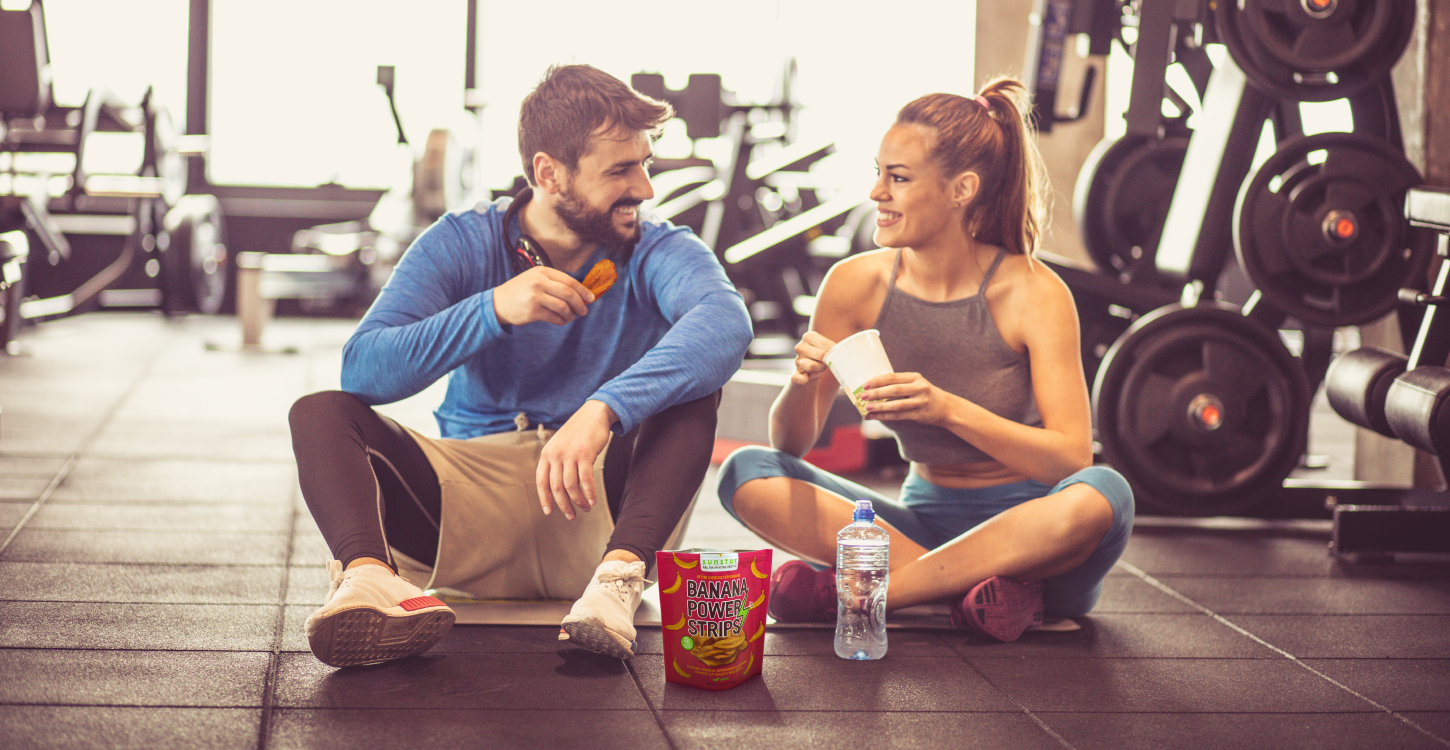As an athlete, you’re always on the move. Between work or classes, training, and competitions, your energy demands are high.
But what if you could fuel your body more effectively? With the power of proper nutrition, you can enhance your performance, speed up recovery, and maintain your energy levels.
This is possible with natural energy supplements and boosters.
These are foods and supplements that provide a clean, sustained energy lift. They’re free from artificial ingredients and packed with nutrients that support your active lifestyle.
In this article, we’ll explore the best natural energy boosters for athletes. We’ll delve into the science behind energy production, the role of different nutrients, and how to incorporate these energy powerhouses into your daily routine.
Get ready to supercharge your performance and embrace your natural vitality. Let’s dive in!
Understanding Natural Energy Boosters
Natural energy boosters are foods or supplements that enhance stamina without artificial additives. They nourish your body with essential nutrients and keep energy levels stable.
These boosters work differently from sugary snacks or caffeine-laden drinks. Rather than quick highs and crashes, they promote sustained energy.
Their effectiveness stems from how they support bodily processes. With the right balance of nutrients, they optimize bodily functions and boost energy levels naturally.
Here’s a brief list of natural energy boosters:
- Whole grains like oats and quinoa
- Fruits such as bananas and berries
- Nuts and seeds
- Herbal teas like green tea
Understanding their benefits can transform your performance. Next, we’ll dig into how specific nutrients power your engine for peak athleticism.
The Role of Macronutrients in Energy Production
Macronutrients are the foundation of energy. Carbohydrates, proteins, and fats each play unique roles in fueling your body.
Carbohydrates are the body’s main fuel source. They convert into glucose, which your muscles use during exercise.
Proteins are key for recovery. They repair tissues and can serve as energy when carbs are low.
Fats provide long-lasting energy. They are crucial for sustained performance, especially in endurance activities.
A balanced intake of these macronutrients supports consistent energy levels and optimal performance.
The Power of Complex Carbohydrates for Endurance
Complex carbohydrates are the perfect source for prolonged energy. Unlike simple carbs, they take longer to digest, providing a steady energy release.
Foods like whole grains, legumes, and starchy vegetables are rich in these carbs. They help maintain glycogen stores, crucial for endurance.
Adding complex carbs into your diet can enhance your stamina during long workouts or competitions.
By fueling your body with the best carbs for endurance, you prepare yourself for peak performance.
Say goodbye to energy crashes and hello to more efficient, longer-lasting power.
Protein: Muscle Recovery and Energy Source
Protein is essential for muscle repair and recovery. After intense workouts, your muscles need protein to heal and grow stronger.
Animal sources like chicken and fish are great, but plant-based options also offer rich nutrients. Think beans and lentils.
While not the first choice for energy, protein can convert to fuel, especially if carb intake is low.
By including adequate protein, you not only support recovery but also provide a backup energy source.
Balancing protein in your diet ensures muscles recover well, ready for your next training session.
Healthy Fats: Dense Energy and Hormone Production
Healthy fats are power-packed with energy, offering more than twice the energy of carbs or proteins.
They play a pivotal role in endurance sports, where prolonged energy output is vital. Avocados, nuts, and olive oil are excellent sources.
Fats also aid in hormone production, crucial for regulating bodily functions and performance.
Consuming healthy fats ensures you have a dependable energy reserve. You get endurance support and hormone regulation in one nutritious package.
Incorporating these fats into your meals provides both immediate and long-lasting energy.
Hydration and Micronutrients: Unsung Heroes of Energy
Hydration is often overlooked but vital for energy. It affects every process in the body, including muscle function and nerve signaling.
When you’re dehydrated, fatigue sets in quickly. Even slight dehydration can impair performance significantly.
Similarly, micronutrients, though needed in small amounts, play big roles. They help convert food into energy, keeping your system efficient.
Together, hydration and micronutrients sustain your energy and ensure peak performance. They’re the quiet champions of your athletic pursuits.
The Impact of Hydration on Energy and Performance
Staying hydrated is crucial for maintaining energy levels. Water helps transport nutrients, regulate body temperature, and keep muscles working smoothly.
Without enough fluids, your body struggles. You might feel tired sooner, and recovery might take longer.
Athletes should aim to hydrate before, during, and after exercise. This way, you maintain energy and improve performance.
Micronutrients: Vital for Energy Metabolism
Micronutrients, including vitamins and minerals, are key players in energy metabolism. They help enzymes break down food into usable fuel.
For example, B vitamins are essential for converting carbohydrates into energy. Magnesium supports muscle function and energy production.
Without adequate micronutrients, your energy levels can dip, affecting performance. Eating a variety of whole foods ensures you get these vital nutrients.
Incorporating a spectrum of fruits, vegetables, and lean proteins can give you the edge you need. It’s all about fueling properly to shine your brightest.
Herbal Energy and Natural Supplements
Herbal remedies offer natural energy boosts and are great alternatives to synthetic supplements. They’re derived from plants and have been used for centuries.
College athletes looking for a safe energy enhancement can turn to these herbal options. They provide a clean and effective way to maintain endurance.
Natural supplements often complement the body’s functions, offering benefits without the crash associated with artificial products. This aligns well with health-conscious values.
Incorporating herbal energy sources can lead to improved performance and recovery. Choosing these natural options supports both the body and mind in a holistic manner.
Herbal Heroes: Green Tea, Ginseng, and Guarana
Green tea is a popular pick among energy foods. It contains caffeine and L-theanine, which enhance focus and alertness.
Ginseng is another powerhouse, known for its ability to fight fatigue. It helps in boosting overall stamina and vitality.
Guarana, rich in caffeine, offers a sustained energy release. It’s a favorite for those needing a quick pick-me-up.
Adaptogens: Balancing Stress and Energy Levels
Adaptogens like ashwagandha and rhodiola rosea are key to managing stress and energy. They help the body adapt to stressors without exhausting energy reserves.
These natural compounds work by regulating the body’s stress response. This results in calmer energy and improved resilience.
For college athletes, adaptogens can enhance endurance and recovery. They promote a stable energy flow, crucial for balancing a hectic lifestyle.
Timing and Quality: Maximizing Energy Through Diet
The timing of nutrient intake is crucial for athletes. It can significantly impact performance and recovery.
Eating strategically around workouts fuels the body efficiently. It ensures energy levels remain steady throughout training.
Quality matters just as much as timing. Selecting nutrient-dense foods provides lasting energy and supports overall health.
Balancing your diet with high-quality choices helps maintain natural vitality. This approach not only boosts physical performance but also supports mental focus.
Nutrient Timing Around Workouts for Optimal Energy
Consuming the right nutrients before and after workouts is key. Carbohydrates before exercise offer a quick energy source.
A post-workout meal with protein aids muscle recovery. It replenishes energy stores and repairs tissues.
Timing these meals can enhance energy availability. Eating within a specific window ensures nutrients are utilized effectively.
Choosing the Right Snacks: Nuts, Seeds, and Natural Sweeteners
Snacking smartly with nuts and seeds provides quick energy. They’re rich in healthy fats and proteins.
Natural sweeteners, like honey or maple syrup, offer quick energy boosts. They’re excellent for avoiding energy crashes.
These snacks are portable and convenient. They fit easily into a busy athlete’s schedule, supporting sustained energy levels.
The Athlete’s Guide to Convenient Energy Foods
As an athlete, your schedule is often packed. Meetings, classes, training, and social activities leave little time for elaborate meals.
Having convenient energy foods on hand can transform your day. They help you stay fueled, focused, and ready to perform.
Healthy snacks don’t just satisfy hunger; they are vital for sustaining energy levels. They support your body’s demands through various activities.
Finding options that are both nutritious and convenient simplifies your routine. They ensure you’re always prepared to power through challenges with consistent energy.
Portable and Quick Energy-Boosting Snacks
Think of portable snacks as your secret weapon. Options like bananas, almonds, healthy convenient all-natural snacks, or homemade energy bars are quick and effective.
These snacks fit easily into a backpack and are perfect for on-the-go refueling. They provide essential nutrients without slowing you down.
Integrating these into your daily routine is simple. They help maintain consistent energy and support your athletic goals effortlessly.
Meal Prepping for Busy Schedules
Meal prepping is a game-changer for busy athletes. It ensures you always have nutritious meals ready, even on hectic days.
Set aside a few hours weekly to plan and prepare meals. This investment saves time during the week and keeps your nutrition on track.
Focus on easy-to-make dishes with balanced ingredients. You’ll find having ready-to-eat meals leads to better food choices and sustained energy levels.
Conclusion: Embracing Natural Vitality for Peak Performance
Achieving peak performance requires mindful choices. Opting for natural energy boosters provides benefits beyond short-term gains.
Incorporating whole foods into your routine supports endurance, recovery, and overall vitality. These choices align with a health-conscious lifestyle, enhancing both body and mind.
As you prioritize natural energy sources, you build habits for sustained athletic success. Embrace this approach, and unlock your full potential with balanced, nutritious choices that keep you energized and thriving.
For more helpful articles on Pre Workout Energy, Energy and Endurance, or Sports Nutrition Science, visit the Power Up Hub.
Looking for a convenient snack that checks the boxes? Try Banana Power Strips for a clean and sustained energy boost– before and after your workouts.

